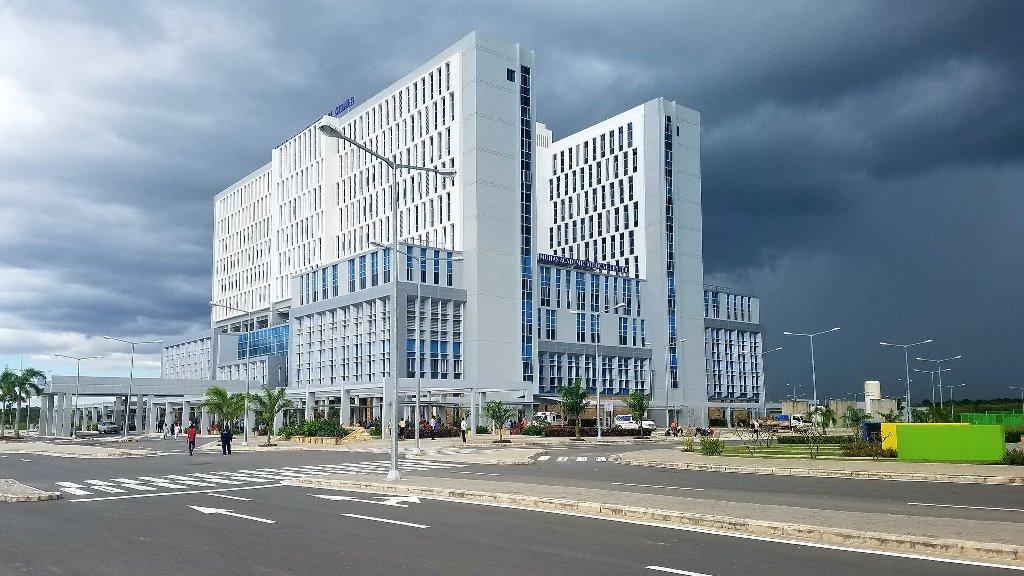Africa-Press – Tanzania. THE country’s ability to treat patients suffering from cardiovascular diseases is set for more advancement as the construction of Centre of Excellence for Cardiovascular Sciences (CoECS) is set to be complete next year.
The centre which is at the Muhimbili University of Health and Allied Sciences (MUHAS) Mloganzila Campus, is expected to contribute more to the government’s efforts in reducing the number of patients seeking treatment abroad, thus saving public funds.
According to Project Coordinator, Prof Gideon Kwesigabo, the construction of the centre is so far complete by 75 per cent.
The CoECS is part of the East African Centres of Excellence in Skills Development and Tertiary Education in Biomedical Sciences Project that aims at contributing to the development of relevant and highly skilled workforce in biomedical sciences to meet the East African Community’s immediate labour market needs.
Prof Kwesigabo said the main purpose of establishing the centre is to support prevention of cardiovascular diseases, offer treatment and save costs spent on sending patients abroad for heart disease treatment.
“The construction work began in 2018 and it was supposed to be complete in 2019, but there were some challenges that held up the completion, including late issuance of building permit, extreme and unforeseen weather conditions and processing tax exemption, which made the contractor to delay in obtaining work equipment that he had to import from abroad,” he said.
He added, “But now the construction is progressing well and it is 75 per cent complete, and we have already spent 50 per cent of the total costs of the project, so we expect that by July 2021, the work will be completed,” Prof Kwesigabo further said that their main request to the government is to provide them with support in construction of a cardiology hospital that will be used for teaching but also to provide services to the people.
Speaking during the official visit of the Deputy Minister for Education, Science and Technology, Mr Omari Kipanga, he said Jakaya Kikwete Cardiac Institute (JKCI) alone was not enough to serve the whole country since it was built to provide treatment only and not to prevent heart diseases.
The centre is funded by the government of Tanzania and a soft loan from the African Development Bank (AfDB). Phase one of the project will cost 10.2 million US Dollars.
Expounding further, he said when the centre is completed, they will be providing training that had already started, and so far 38 professionals are already on training, where some of them are in the PhD level.
Other responsibilities of the centre include development of curricula, where so far seven curricula are ready and four of them have been approved by Tanzania Commission for University (TCU) where they have successfully recruited 14 students for the first time in 2020/2021 academic year that will use the curriculum.
Other areas that the centre will prioritise are regional integration, creating a database of cardiovascular diseases to determine the extent of the problem and see the contribution that the facility will make to reduce these problems.
On his part, Mr Kipanga said the project is important for the East African Community (EAC) because it will increase regional cooperation.
Phase one of the project will support the creation of a network of CoEs in biomedical sciences and engineering – Nephrology and Urology in Kenya, Oncology in Uganda, Cardiovascular in Tanzania and Biomedical Engineering and eHealth in Rwanda.
The project’s main objective is to enhance EAC’s competitiveness through a highly skilled workforce in biomedical sciences.
The project will enable EAC to increase its capacity and competitiveness through expanding higher education and specialised service delivery that is demanded by the rapid economic development in East Africa.
On the other hand, the project has the potential to create jobs for professionals and support services through medical tourism within the EAC as well as from other African regions.







